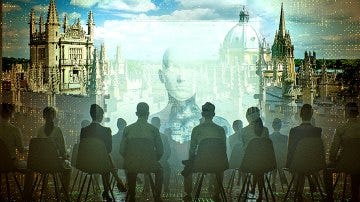AI’s great brain robbery — and how universities can fight back
ChatGPT and its like have swept through academia, changing how students work, write and think. The bots are here to stay, so we need to reimagine learning
“Do you yet understand we’re living in a sci-fi novel”? That was the question posted on X last month by Mike Solana, a protégé of Peter Thiel. “Seems that way,” replied Elon Musk. He should know. Thirty years ago, you might have scoffed at a sci-fi book set in 2025 about a multibillionaire whose companies operate a vast fleet of self-driving electric ca…
Keep reading with a 7-day free trial
Subscribe to Niall Ferguson's Time Machine to keep reading this post and get 7 days of free access to the full post archives.





